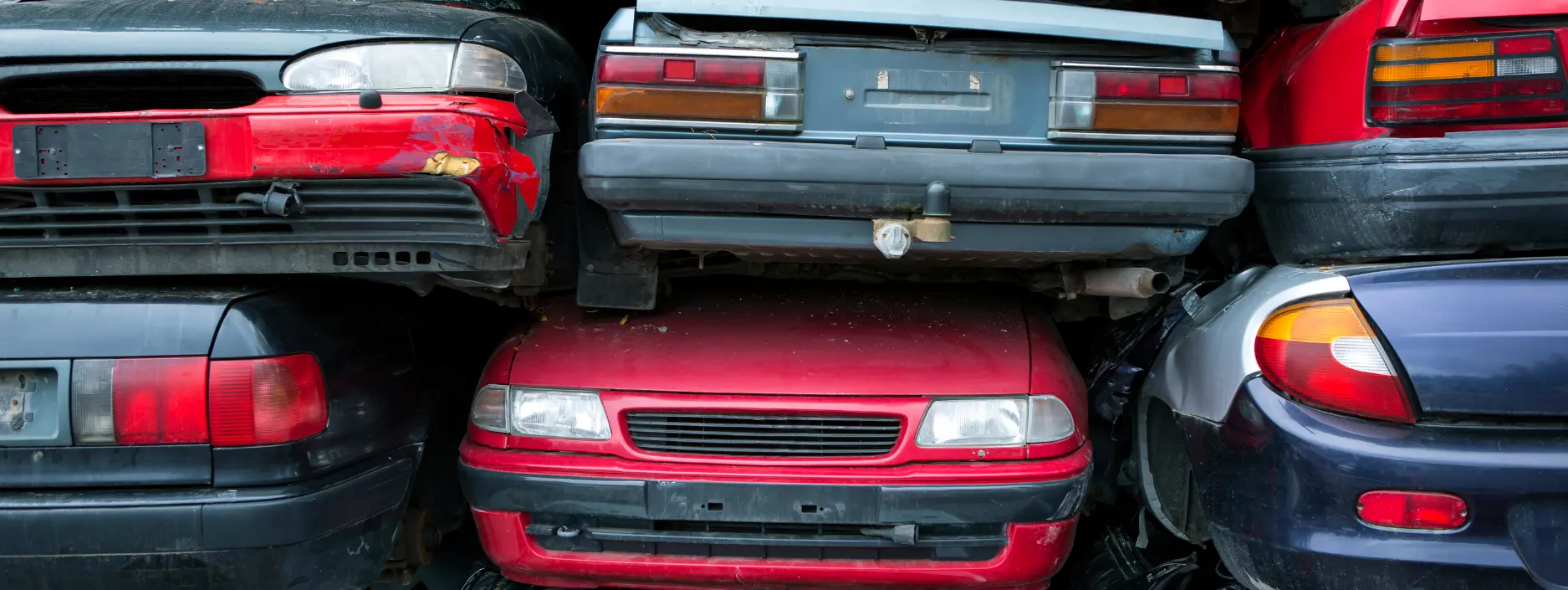The process of collecting and dealing with a scrap car entails lots of different legislation, licences and registrations, all of which need to be in place before someone can legally work in the scrap industry. For example, the Scrap Metal Dealers Act 2013 helps to ensure that Authorised Treatment Facilities are licensed and environmentally sound, and that those selling the cars for scrap can prove that they’re associated with the vehicle.
One more licence that is required, not just by scrap car dealers and collectors, but by all manner of individuals and organisations, is the Waste Carriers Licence. Read on to learn more.

What is a Waste Carriers Licence?
Any business that transports some kind of waste, whether that’s simply to carry it from one place to another, or whether it’s to buy, sell or dispose of waste (or arrange for someone else to do it), needs a Waste Carriers Licence.
Waste is quite a wide-spanning term, but some common waste items might include gardening cuttings and clipping, animal or agricultural waste, leftovers from hospitality cooking, the contents of residential or commercial skips and, of course, even cars heading to the scrap yard.
All of these carriers, dealers or brokers, whether they’re self-employed individuals or larger organisations, will need to register for the licence online with the Department for Environment Food & Rural Affairs (DEFRA or the Environmental Agency).
There are two types of Waste Carriers Licence:
- Lower tier – this is generally if you’re carrying waste you’ve created yourself (not including building or demolition waste), so for example, this is the tier you’ll need if you’ve washed a car and are taking the waste water away to dispose of. This tier also covers waste from agricultural premises (think gardening or farming waste), waste from mines and quarries, animal by-products or if the person or company is a charity or voluntary organisation.
- Upper tier – this covers all other types of waste collections, whether that’s construction, demolition, recycling or even collecting skips.
Lower tier licences will not need renewing, but upper tier licences expire every 3 years, so will need to be renewed at this point.
Why is a Waste Carriers Licence important?
The Waste Carriers Licence is a way of showing Duty of Care, a legal requirement to ensure that waste is being dealt with legally and correctly. If waste is being dumped or fly-tipped where it doesn’t belong or is destroyed in the wrong way, this could lead to major environmental or legal issues.
If you’re a customer arranging for waste to be taken away or sold, you may want to check the organisation you’re using has one of these licences. If you’re an individual or company collecting or brokering, it’s essential to have this licence to show to your customers, to prove your processes are all above-board.
How to check if a waste carrier is licensed?
It’s easy to check whether a company you’re using has a Waste Carriers Licence, as anyone applying for one needs to be registered with DEFRA. You can check using the Search Waste Carriers and Brokers tool on their website.
How to get a Waste Carriers Licence
If you’re looking to start transporting, selling or buying waste, you’re legally obliged to register for a Waste Carriers Licence – failure to carry one could result in a £5,000 fine.
You can get started on your application over on the Gov.uk website here. Once you have your licence, you can arrange to receive a free publicity pack, including stickers for your shop window (if applicable), as well as digital widgets for your website with the relevant logos. This will show potential customers that you’re fully registered.
How much is a Waste Carriers Licence
A Lower tier licence is free to apply for. An Upper tier licence costs around £154 and then £105 to renew every three years.
We always ensure that all of the scrap dealers we work with hold an in-date Waste Carrier Licence. You can learn more about the car scrapping process here, or head over to our quote pages to see how much you could scrap your car for today.

